How long do solar panels last? In the following article, you’ll discover the influencing factors determining the lifespan of solar panels. Also, we will give you valuable tips to help maintain optimal conditions and extend the panels’ useful life.
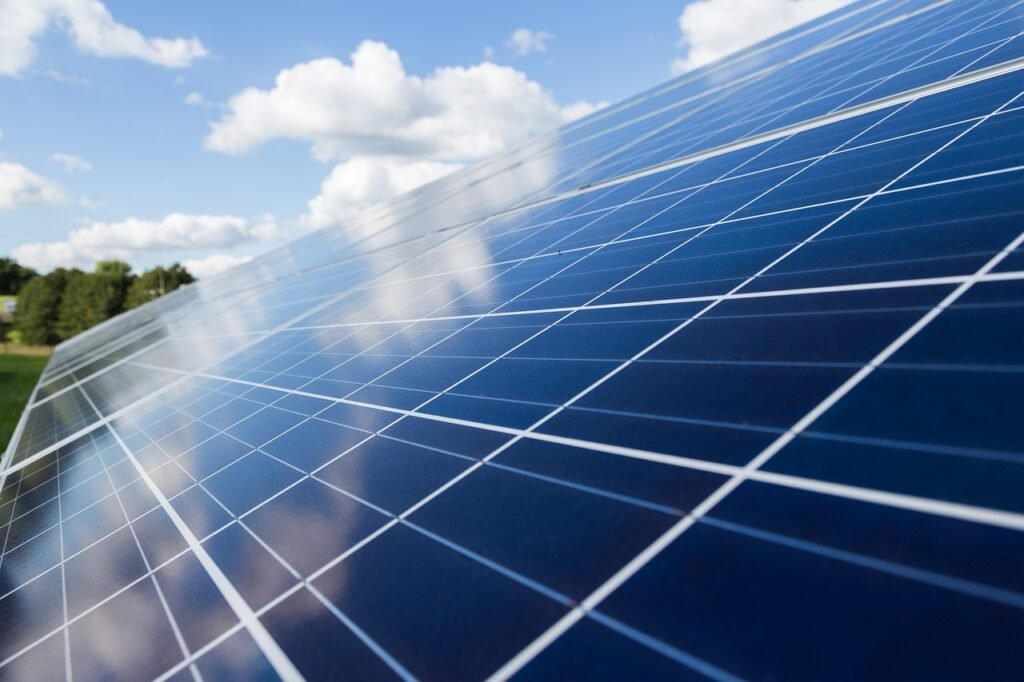
Solar Panel Lifespan
The useful life of an asset, in this case, a solar panel, is the period during which it remains productive and economically efficient. This period is contingent upon factors such as usage patterns and environmental influences. Solar panels are installed outdoors to harness maximum solar radiation. So, they are susceptible to environmental factors that may affect their performance.
On average, solar panels have a lifespan of 20 to 25 years. However, this figure varies across different types and brands of solar panels. The longevity of solar panels is also influenced by the manufacturers, who determine the quality of materials and the efficiency of the manufacturing process. While most solar modules are made of silicon, the techniques employed differ among manufacturers. Then, buying photovoltaic panels from reputable brands is crucial.
Photovoltaic modules undergo various tests to ensure optimal longevity, including the Light Induced Degradation (LID) test. This test addresses a phenomenon inherent in all silicon cell-based solar panels, involving a tiny percentage loss of initial efficiency. If, after the stabilization stage, the loss percentage exceeds 5%, the solar module will not pass the test.
Measurement of Solar Panel Lifespan
Solar panels are designed to operate for decades, making them highly profitable investments. Their quality is pivotal in determining their lifespan, with reputable manufacturers producing solar panels that last up to more than two decades, although at a higher cost.
The average useful life of solar panels is 25 years. However, this doesn’t imply a sudden halt in production after that period. Instead, their production power and efficiency gradually decline over the years, with the phenomenon known as the Degradation Rate. A study by the National Renewable Energy Laboratory in the United States identified a 0.5% annual loss in solar panels. This figure accumulates to 2% in four years, reaching 3% in six years, and so forth.
Warranties become crucial in this context. Most manufacturers offer product or mechanical warranties of around 10 years. So, they ensure effective performance within that timeframe, provided proper usage guidelines are adhered to. Brands that use advanced production techniques extend these warranties often.
Factors Influencing Solar Panel Lifespan
Beyond the degradation rate, several factors impact the effective lifespan of solar panels. Consideration of these factors before buying and installation is essential. The most important are:
Installation
How solar panels are installed plays a crucial role in their useful life. Wrong installation can lead to detachment and cracks, negatively impacting electricity production. You should choose the location carefully to minimize adverse effects on the solar panels.
Manufacturing Quality
This includes both the selection of components and the assembly process of photovoltaic panels. Manufacturers employing better treatment of solar cells can deliver solar modules with greater efficiency, capturing solar radiation for an extended period. Certain brands provide warranties of up to 20 years.
Maintenance
Maintaining your photovoltaic modules in optimal condition directly influences their production. Regular maintenance, including the cleaning of photovoltaic panels and inspections by technicians to ensure proper operation, is recommended to extend their useful life.
To sum up, these factors come into play before and after installation. Opting for excellent manufacturing quality is a decision made before buying photovoltaic panels. You can determine your budget for solar modules. Also, we recommend choosing a reputable photovoltaic company offering optimal installation and monitoring services along with high-quality products.
Other posts you may be interested in
The climate in the UK
The climate can significantly influence the lifespan and performance of solar panels. Here are some climate factors specific to the UK that can impact solar panels:

Cloud Cover and Sunlight Availability
The UK is known for its variable and often cloudy weather. Cloud cover can reduce the amount of sunlight reaching solar panels, affecting energy production. While solar panels can still generate power on cloudy days, extended periods of overcast conditions may lead to lower overall energy output.
Rainfall and Humidity
The UK experiences frequent rainfall and high humidity. While rain helps clean the solar panels, excessive moisture can contribute to the accumulation of dirt, bird droppings, and other contaminants on the panel surface. Regular cleaning is essential to maintain optimal efficiency.
Temperature Extremes:
The UK has relatively mild temperatures, but there can still be variations throughout the year. Solar panels generally perform better in cooler temperatures, but extreme heat or cold can impact efficiency. High temperatures can lead to a decrease in efficiency, while freezing temperatures may pose a risk of frost damage.
Wind and Storms
The UK is susceptible to strong winds and occasional storms. Proper installation and secure mounting of solar panels are crucial to withstand windy conditions. Severe storms may pose a risk of physical damage, and regular checks for any structural issues are advisable.
Seasonal Changes
The UK experiences distinct seasons, with shorter days and less sunlight during winter. Seasonal changes can affect the overall energy production of solar panels. It’s important to consider these variations when estimating the energy output and designing solar installations.
Air Quality
Urban areas in the UK may have air pollution, which can deposit particles on the solar panel surface, reducing their efficiency. Regular cleaning and maintenance are essential to mitigate the impact of air pollution on solar panels.
Salt Exposure (Coastal Areas):
Coastal regions may experience exposure to salt from the sea, which can accelerate corrosion. Solar panels in these areas may require additional protection and maintenance to prevent damage from salt exposure.
KEY INFO
Despite these climate challenges, solar panels can still be a viable and effective renewable energy source in the UK. Proper installation, regular maintenance, and choosing high-quality panels can help maximize the lifespan and performance of solar panels in the diverse climate conditions of the UK.
How to Extend the Useful Life of Solar Panels? Tips for Solar Panel Care
✔ Choose Reliable Equipment and Installers:
Investing in a photovoltaic system is significant, and allocating a larger budget ensures the buying of products from brands offering enough guarantees. Choose reliable suppliers with competent technical teams to guide you throughout the process.
✔ Clean Your Solar Panels:
While photovoltaic modules have minimal maintenance needs, periodic cleaning is advisable, especially depending on the area or context. Although weather conditions cannot be controlled, regular annual cleanings help remove dust or dirt from the panels.
✔ Constant Inspections:
Besides cleaning, regular inspections are crucial to confirm that components are operating at the correct power. Identifying and addressing issues such as bad connections, damaged wiring, or anomalies in electricity production prevents accelerated deterioration under adverse conditions.
In summary, solar panels prove profitable in the long term because of their extended useful life. To increase the longevity of solar panels, follow the recommendations given in this article.
When to replace your solar panels?
As we have seen, solar panels will continue to produce electricity even after the 25-year warranty period if they are well maintained. However, it is important to note that they will not be as efficient in producing energy as when they were first installed.
So, you do NOT need to replace your panels if:
- Your solar panels produce enough energy to cover your electrical needs.
- If none of your panels are broken.
But you need to replace your panels if:
- Your solar panels produce very little electricity to the point where they no longer adequately power your energy needs.
- Your system was not properly maintained and has many broken panels.
So, if after the 25-year period you notice that your energy bill is slowly increasing, it could be because your solar energy system is not working efficiently. If this happens, you may need to invest in new solar panels.
Quality solar inverter manufacturers offer apps that monitor your solar electricity generation on a monthly or even daily basis. Having an idea of what your panels produce will help you notice if something is wrong. For example, if your solar panels generate 35kWh of electricity per week and you notice that over the years this reduces to 32kWh, then 30kWh, and there is no visible debris or increased shade coverage on your roof, this may indicate that your panels are starting to degrade.
KEY INFO
When your panels no longer produce the amount of electricity you need, it’s time to replace them.
Conclusion
In this article, we have seen that solar panels, with minimal maintenance, can last 25 or 30 years with high production. But they can continue to operate for more years, although with lower production
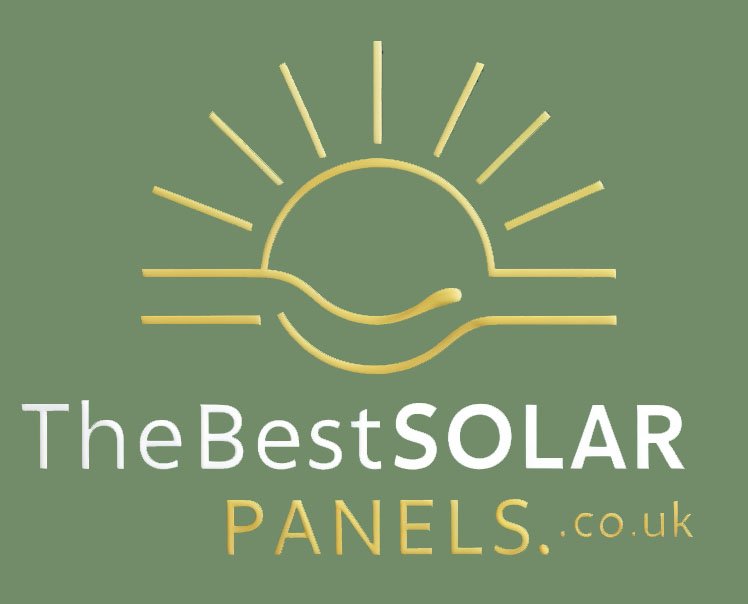
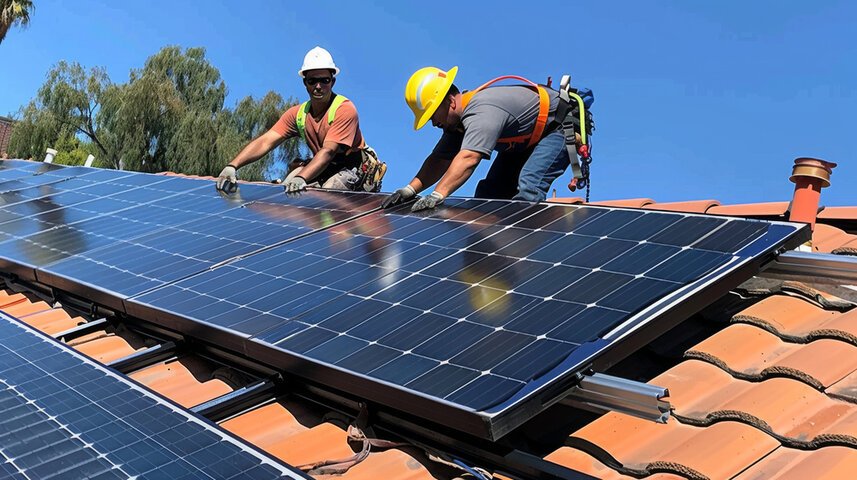

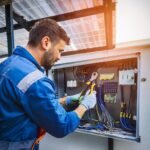

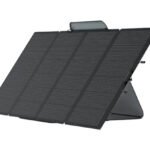
Leave a Reply